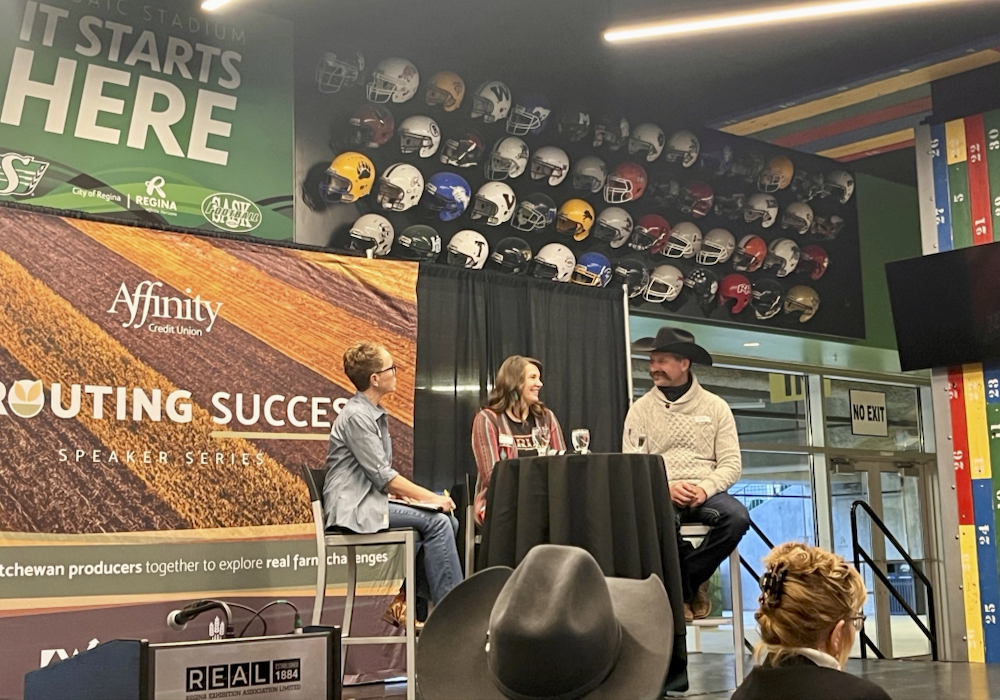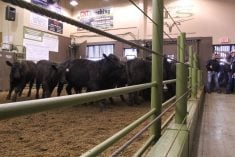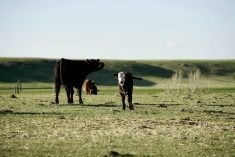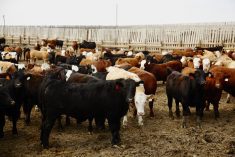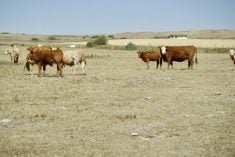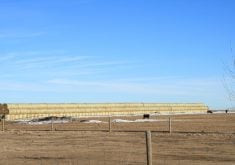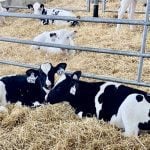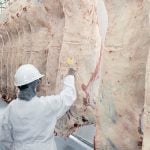Golden light shines through the window into Mosaic Stadium’s Harvard Lounge and onto the stage, but as John and Deanne Chuiko take the stage, the light settles on the horizon and a winter prairie night spreads through the sky. Outside, people bustle in and out of the REAL District as Agribition rages.
John and Deanne Chuiko own and operate CJ Ranching near St. Walburg, Sask. They have around 400 cow-calf pairs and 400 yearlings. A pillar of their operation is holistic management and rotational grazing.
The Chuiko’s spoke at the Sprouting Success speaker series hosted by Ag-West Bio, where they were asked to speak about their pilot project with the virtual fence company, Vence. They said they are primarily using this technology on their forest lease, which is around 7,500 acres.
Read Also
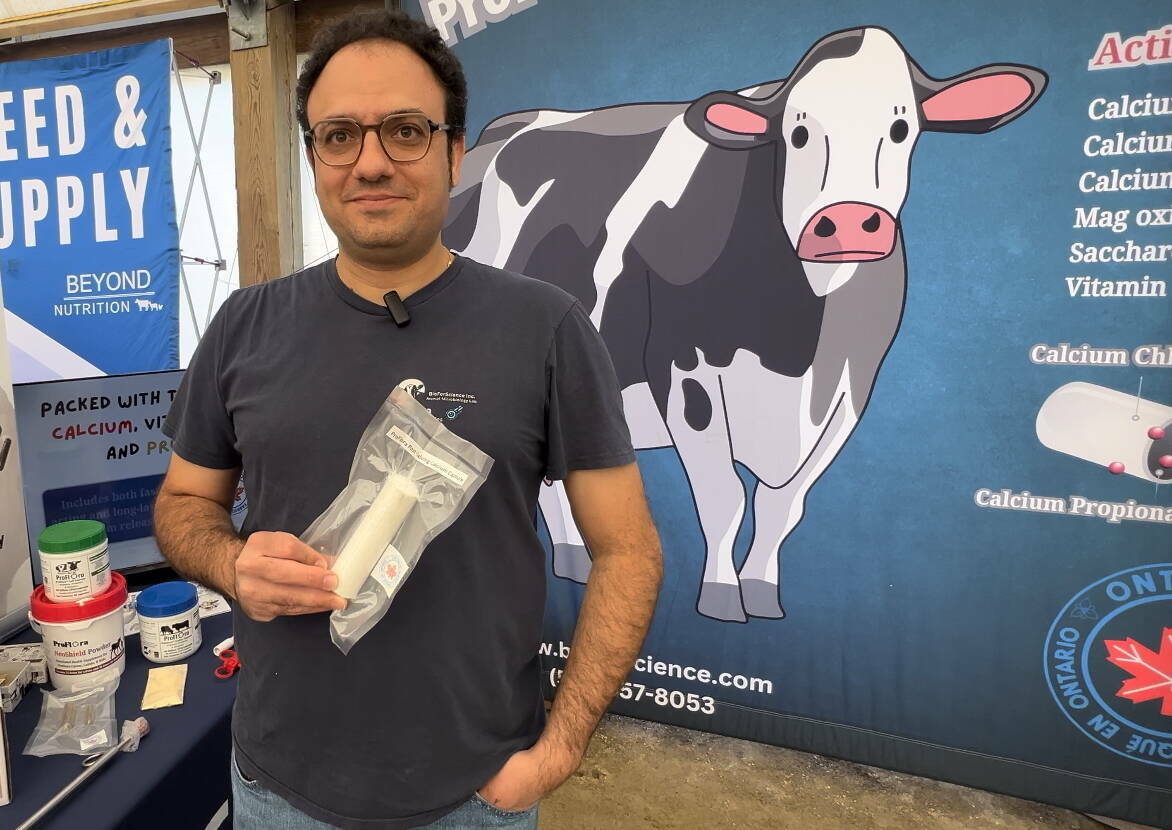
Canadian Cattle Young Leaders, national Environmental Stewardship Award winner and more
Canadian beef industry news, including award winners and job changes.
John Chuiko says because they are rotationally grazing, he thinks a virtual fence would work well on their operation.
“We’re moving the cattle every day, we’re with the cattle every day, soil health is very important to us,” he says. “So if we’re able to use this technology to do the same thing to move our cattle around on our forest lease, I think that is going to be very, very good for our land.”
The pilot project for Vence is funded through the Canadian Forage and Grassland Association, Saskatchewan Stockgrowers Association and the Government of Saskatchewan.
At the SSGA annual general meeting in June of 2022, Vence presented about their technology. Later that year, Chad MacPherson, the general manager of SSGA, said in an interview the SSGA decided to fund the study after Vence, a California-based company, reached out to them to do a trial for their virtual fencing technology in Saskatchewan. At the time, the pilot was supposed to start in June of 2023, but delays meant the Chuiko’s didn’t receive the base towers until partway through November, which John is currently working on assembling.
John and Deanne say one of the biggest challenges with this technology in Saskatchewan is connectivity.
“That is the challenges of this, because it all has got to be able to talk – the base stations have to talk to the GPS and they have to talk to the collars. So it’s going to be interesting to see how this all works,” John says.
“That’s also the beauty of the trial right?” Deanne added. “They’re holding our hands.”
The Chuiko’s say they were approached about trialing this technology because of the vast size of their forested lease. When asked in an interview following their presentation if they think the technology is well suited for wide open prairie or only forested land, they say yes, it is.
“They just want to try it in kind of some rougher country I think is what they wanted and that’s why this was interesting to them. But it would work just fine on open ground,” John says.
“They wanted to see if this technology would work in harder type environments.”
After talking to the engineers of the technology, John says he thinks the technology will be efficient for rotational grazing but might not work to rotate their cattle every two hours. However, he says they won’t know for certain until they start using the technology.
He says this is the job of a pilot project.
“He said he’s not sure that it’s going to be able to dial down that much, that specific. So we’re going to just do whatever the tech is going to allow us to do,” John says.
“That’s still up in the air what we’re going to be able to do with it.”
He says he doesn’t believe this technology is financially viable for producers in Saskatchewan as of right now, but he believes it will become more affordable over time as it becomes more common.
“I think the cost is quite high on this technology right now. So that will be the thing if we can make this technology user-friendly and not quite as expensive.”
Currently, the timeline for this pilot project is two years. John says they’re just getting set up, and they’ll get started with the grazing season in the spring of 2024.


